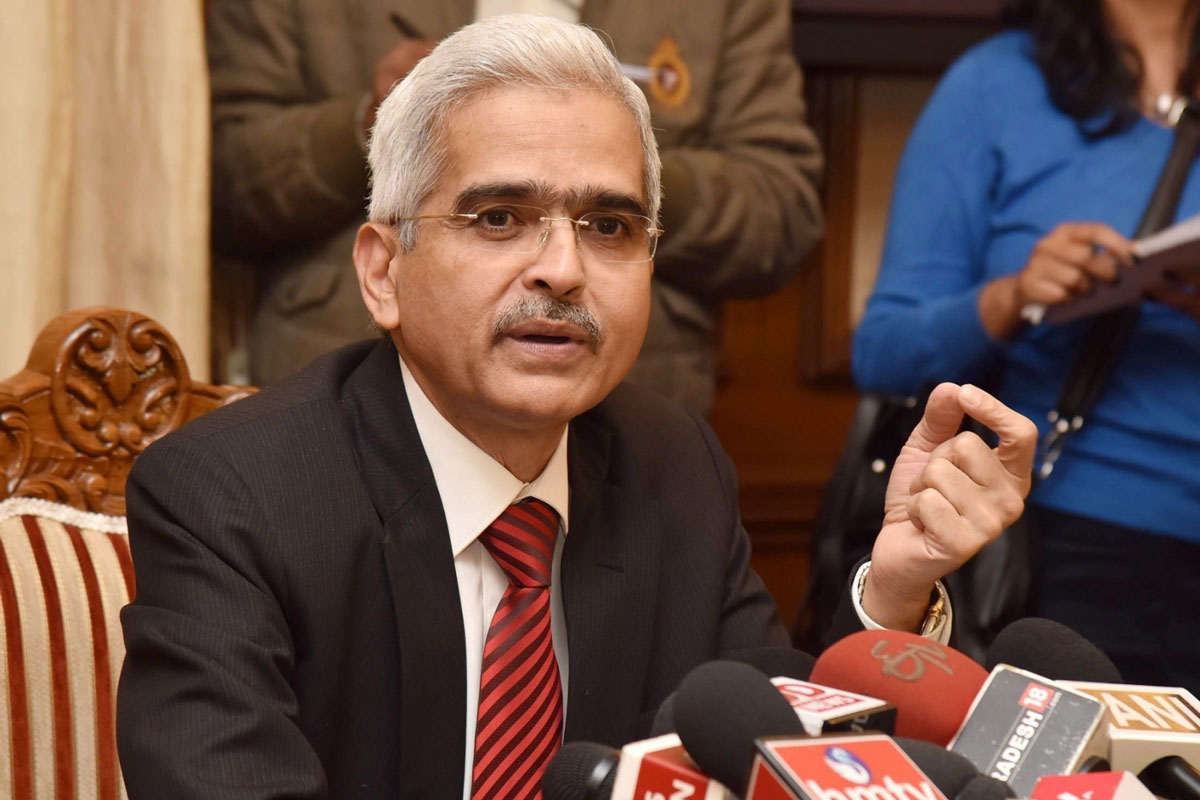About 85 pc of world’s cryptocurrencies are not even worth a cent: Report
About 85 per cent of the world’s cryptocurrencies are worth less than one cent, according to a report on Monday.
“At the same time, high levels of global debt, monetary policy tightening, risks associated with the cryptocurrency ecosystem and climate-related risks and more recently, geopolitical conflict posed threats to global financial stability.”

He said, to face the ongoing crises India’s central bank will use any instrument necessary to revive growth and preserve financial stability. (Photo: IANS)
Cryptocurrencies are a clear danger and anything that derives value based on make-believe, without any underlying, is just speculation under a sophisticated name, RBI Governor Shaktikanta Das has said in the foreword of the Financial Stability Report (FSR) released on Thursday by the Reserve Bank of India (RBI).
Referring to the FSR report, the RBI Governor said that stress test results presented in this FSR demonstrate that banks are well-positioned to withstand even severe stress scenarios “A noteworthy feature of the current situation is the overall resilience of Indian financial institutions, which should stand the economy in good stead as it strengthens its prospects.
Advertisement
This reflects a combination of good governance and risk management practices, as highlighted in this issue of the Financial Stability Report. Stress test results presented in this FSR demonstrate that banks are well-positioned to withstand even severe stress scenarios without falling below the minimum capital requirement,” he said.
Advertisement
“Even so, we must be mindful of the emerging risks on the horizon. Cryptocurrencies are a clear danger. Anything that derives value based on make believe, without any underlying, is just speculation under a sophisticated name. While technology has supported the reach of the financial sector and its benefits must be fully harnessed, its potential to disrupt financial stability has to be guarded against. As the financial system gets increasingly digitalised, cyber risks are growing and need special attention,” he added.
The Financial Stability Report also noted that cryptocurrencies pose risks.
It said cryptocurrencies, typically created on decentralised systems, are “designed to bypass the financial system and all its controls, including Anti Money Laundering (AML)/Combatting the Financial Terrorism (CFT) and Know Your Customer (KYC) regulations”.
“They are characterised by highly volatile prices. As a sub-class of cryptocurrencies, stablecoins are supposedly less volatile as they are linked to a currency (or similar assets).”
The report said that currently, the market capitalisation of a total of 19,920 cryptocurrencies trading on 528 exchanges stands at $908.7 billion10, with Bitcoin accounting for 44 per cent of this market capitalisation.
“The top two cryptocurrencies account for 59 per cent while the top five account for more than three-fourths. Cryptocurrencies are not currencies as they do not have an issuer, they are not an instrument of debt or a financial asset and they do not have any intrinsic value. At the same time, cryptocurrencies pose risks,” the report said.
“Historically, private currencies have resulted in instability over time and in the current context, result in ‘dollarisation’, as they create parallel currency systems, which can undermine sovereign control over the money supply, interest rates and macroeconomic stability.”
RBI said that for developing economies, cryptocurrencies can erode capital account regulation, which can weaken exchange rate management. “Furthermore, cryptocurrencies can lead to disintermediation from the formal financial system, impairing financial stability,” it added.
The report said that crypto assets have gained in popularity in emerging market economies in recent years, especially in countries with volatile exchange rates. “For residents in these countries, crypto-assets pegged to reserve currencies such as USD-linked stablecoins are a convenient tool to avoid capital controls and KYC/AML requirements.”
The report said that recent regulatory measures have focussed on curtailing the solvency risk of financial entities, promoting market-based financing and reducing the moral hazard of unduly prolonged policy support.
“At the same time, high levels of global debt, monetary policy tightening, risks associated with the cryptocurrency ecosystem and climate-related risks and more recently, geopolitical conflict posed threats to global financial stability,” it said.
Advertisement